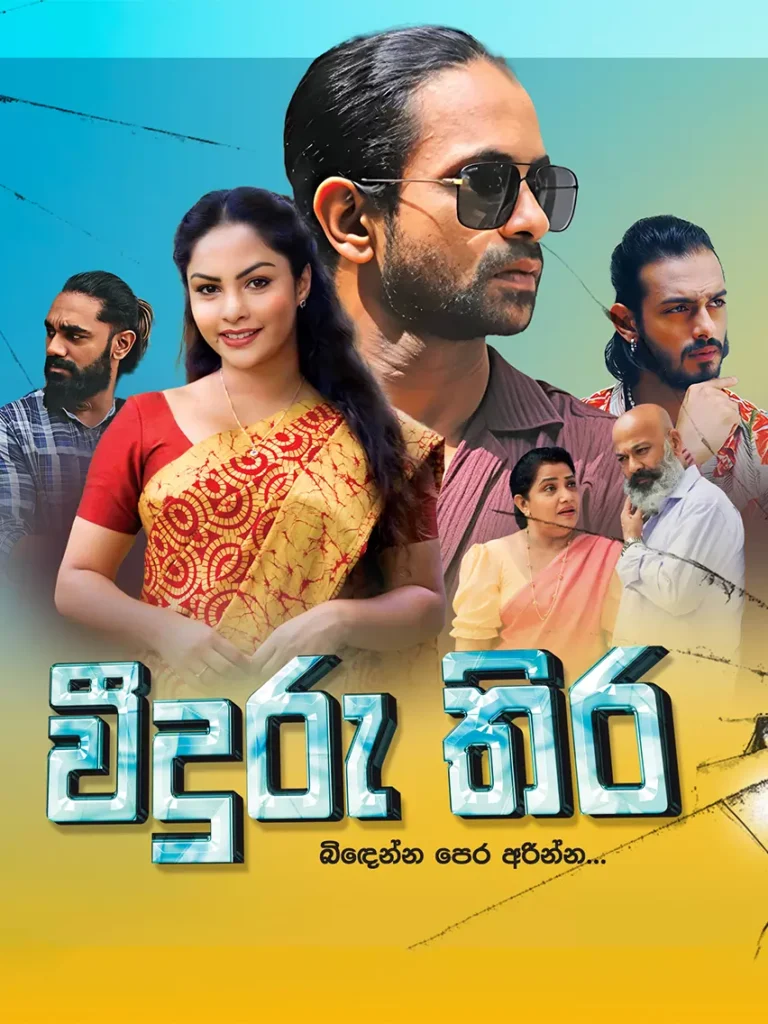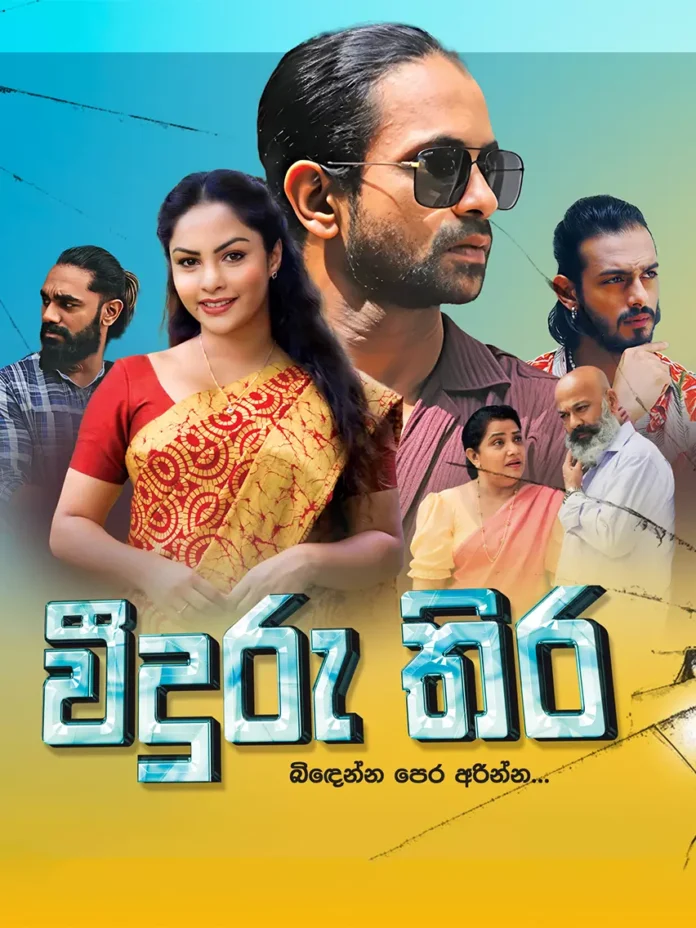By: Isuru Parakrama
August 07, Colombo (LNW): In a society steeped in conservative tradition, where silence is often mistaken for virtue, the Sri Lankan teledrama Veeduru Thira (Glass Curtains) has dared to draw the curtain aside—revealing the complex, messy and uncomfortable truths that simmer beneath the surface of seemingly perfect lives.
Aired on the state-run Independent Television Network (ITN), the series marks a historic moment: the first openly gay-themed narrative to grace the screens of national television. More than a drama, Veeduru Thira is a cultural reckoning.
At the heart of this narrative lies a bold confrontation—not with law, not with policy, but with society itself. It takes the traditional Sri Lankan marriage, with its pomp, parental expectations, and reproductive ideals, and slices it open to reveal the rotten core hidden beneath many so-called “honourable unions”.
The character of Sulochana, portrayed as a soft-spoken, dutiful husband, slowly unravels into a symbol of social duplicity—closeted, conflicted, and complicit. His secret relationship with another man, masked under the guise of family honour, turns Chethini’s newlywed life into a carefully choreographed illusion.
Herein lies the brilliance of Veeduru Thira. It does not scream for rights; it simply shows a truth that many dare not whisper. Through Chethini’s story—her confusion, her entrapment, and the gaslighting she endures—the drama forces viewers to confront a deeply buried question: how many marriages in our society are simply façades crafted to serve a legacy of silence?

It is common in Sri Lankan society to disguise shame as culture, to equate exposure with immorality. But these are not values derived from deep-rooted local traditions. They are inherited distortions—tattered remnants of post-colonial ideologies that sought to sanitise and regulate personal identities through imported Victorian morals.
Long before colonial ink was spilled on parchment, Sri Lanka had known fluidity in gender roles, expression, and identity. One only needs to look at the island’s precolonial art, folklore, or indigenous rituals to witness the celebration of diverse sexual and gender realities. What we now call “taboo” was once part of the cultural mosaic.
The tragedy lies in how far we have been pulled from that past. In this modern era, many queer individuals—especially men—feel forced to lead double lives. They marry to pacify family expectations, to secure inheritance, to blend in. But Veeduru Thira thrusts it into the open: women like Chethini become collateral damage in the secret war waged by internalised shame. The drama’s portrayal of Sulochana and Sachithra’s clandestine affair is not just about infidelity—it is about privilege, cowardice, and the cost of pretending.
Some critics have been quick to dismiss the series as provocative or inappropriate. But beneath the glossy surface of its script lies an uncomfortable, necessary truth: Veeduru Thira is not trying to be liked, it does not cry for LGBTQIA+ rights. The teledrama simply wants you to exercise the most important aspect of people’s relations—listen.
And once you see through the glass, you cannot unsee.

